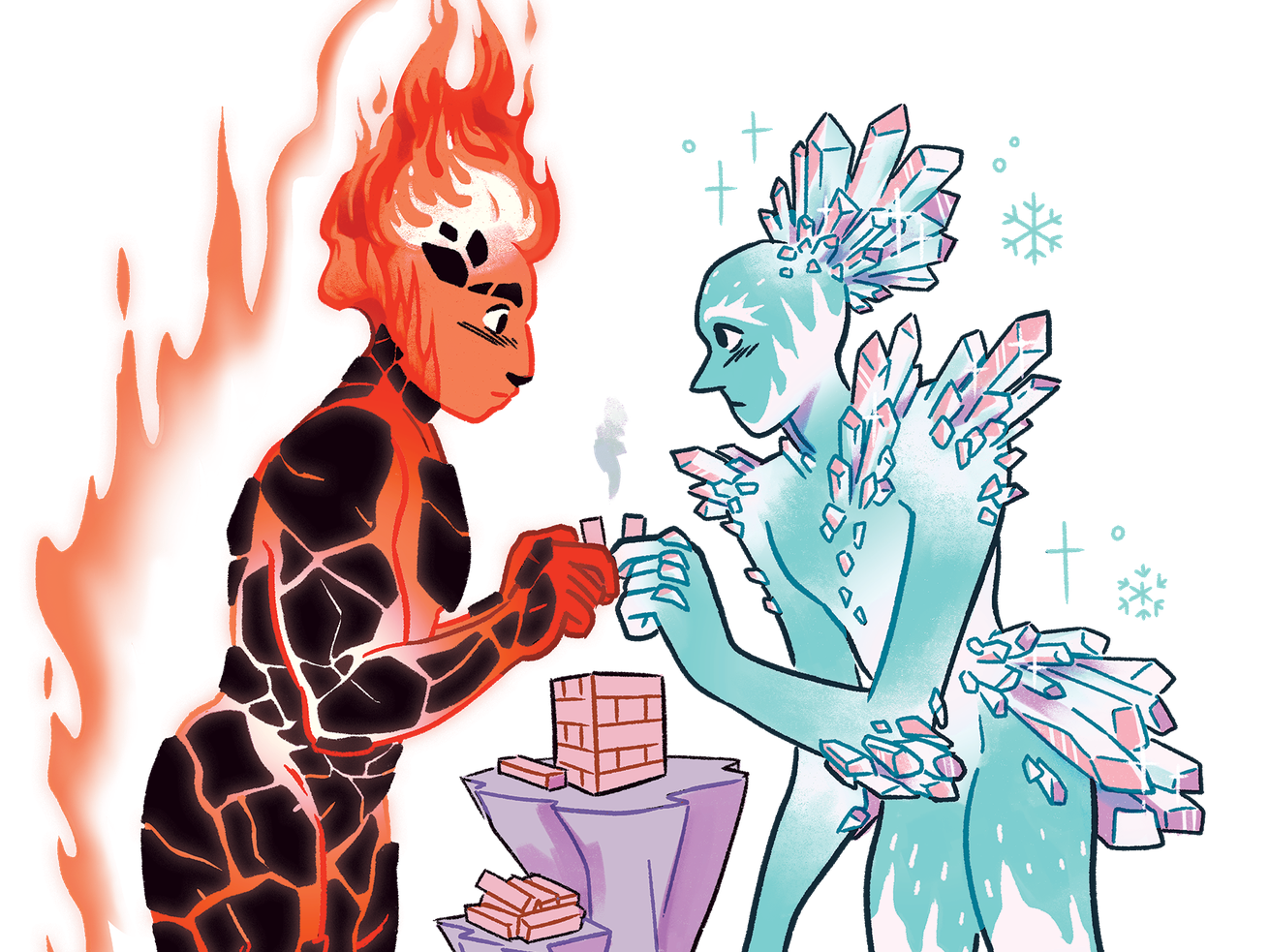Star Crossed is a tabletop RPG where every single stray brush of the hand could lead to a love affair’s collapse.
Consider this: Horror and romance are mirror images of each other.
Both genres are built around one of our most primal emotions. Both are about the inevitability of something that you know is coming. And both follow certain well-worn tropes along the path to their conclusions. There might be some twists thrown in here and there, but even the least subversive horror and romance stories out there can satisfy, just because we love being scared and we love seeing people kiss.
So when I heard that the tabletop role-playing game Star Crossed built its central romantic story around gameplay mechanics taken from a horror game, I thought, “Well, of course. It just makes sense.”
Star Crossed is one of my favorite gateway RPGs to play with friends who are getting interested in the tabletop gaming hobby, and it’s the rare RPG that would work well as something to break out on a date night. For starters, it’s explicitly for two players, who play out a possibly doomed romance. And beyond that, it’s terrific at guiding you precisely through the familiar beats of two people who probably shouldn’t get together but they just. Keep. Accidentally. Brushing. Hands. Ahhhhhh! If you’ve never played a game like this before, Star Crossed is going to hold your hand (in a non-romantic fashion) every step of the way.
Star Crossed was designed by Alex Roberts, who’s one of the best RPG designers working right now, particularly for this game and the even-better-as-a-gateway-RPG game For the Queen. But she’s built Star Crossed around an idea from the horror game Dread, which aims to replicate movies where an unstoppable force is pursuing a bunch of doomed innocents.
In Dread, when it’s time to take an action to hopefully avoid the killer, you draw a brick from a Jenga tower, then place it atop said tower. (Technically, since Dread is not a licensed Jenga product, the manual just calls it “the tower,” but it’s a tower made of wooden bricks you remove one at a time. You know what this is.) If the tower falls, well, that’s it for you. But if it stays up, you live to run from the killer another day.
What Dread figured out is that the tension that naturally arises from drawing brick after brick from a Jenga tower mimics the tension we feel watching the main characters try to escape the killer in a horror film. But horror isn’t the only genre that derives much of its enjoyment from the constant build of tension. Enter Star Crossed.
Star Crossed takes that basic idea of turning Jenga into a storytelling mechanism and finds all kinds of fun ways to intersect that notion with a romantic story. Two players sit down and create two characters who will have a sudden, mutual attraction. One will be slightly more outgoing, and the other will be slightly more introverted, but it all adds up to a kind of dance, full of thwarted glimpses and coy smiles.
/cdn.vox-cdn.com/uploads/chorus_asset/file/23210371/2018_12_06_21.45.02__1_.jpg)
Bully Pulpit Games
But when you want to exchange dialogue with the other character, you have to touch the Jenga tower. And every time you take a step further down the path toward romance, you have to draw a brick. If the tower falls early on in the game, the romance is doomed. But the further you progress in the story and the longer the tower holds on, the more likely it is that these two crazy kids are gonna make it all work.
Roberts has structured the game around a series of scenes, from an initial meeting to the final moment when the lovers throw caution to the wind and see what happens. But each individual player is also keeping track of moments when their character did something they wouldn’t normally do to try to win the other character’s heart. It’s rare, but if there aren’t enough of those moments, the relationship might still fall apart, even if you make it through all of the story scenes.
What characters you create are also entirely up to you. The game is more than happy to accommodate whatever love story you might find most compelling to dig into, regardless of the characters’ sexualities or genders. It can be a fun space in which to figure out just why you’ve always loved romances where one participant is a space alien.
And Star Crossed can be used to tell stories other than romances, too. I’ve played out high school best friend breakups, an alien virus trying to convince the scientist watching over it in a high-security lab to just let it infect the world, and a trans woman’s inner voice trying to convince her seemingly male self to listen to her and transition.
Almost all of the games of Star Crossed that I’ve played have ended in disaster, but that’s part of the fun. In the course of trying to find our one true love, or even just somebody who might be kind of fun to hang out with for a while, it’s so easy to keep running across people who catch our eye, then turn out to be exactly the wrong match. Every time we talk to them or kiss them or brush their hand is a little like touching a wobbly tower made of wooden bricks, waiting for everything to fall apart.
But in Star Crossed, unlike in life too often, you just put that tower back together and start all over again.
Star Crossed is available from Bully Pulpit Games. The version currently on sale doesn’t include wooden bricks, but Jenga is available almost everywhere. For more recommendations from the world of culture, check out the One Good Thing archives.
Author: Emily VanDerWerff
Read More
